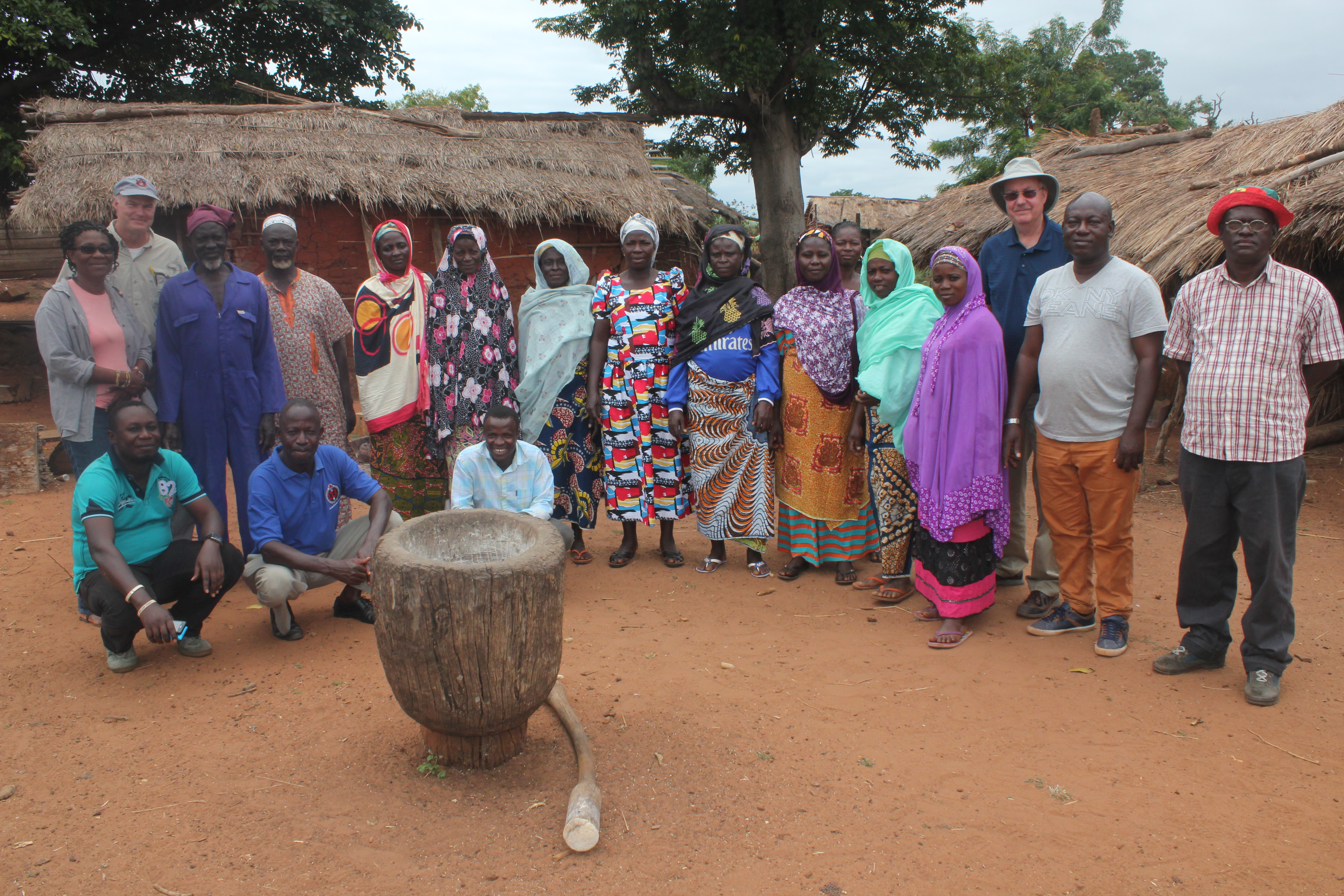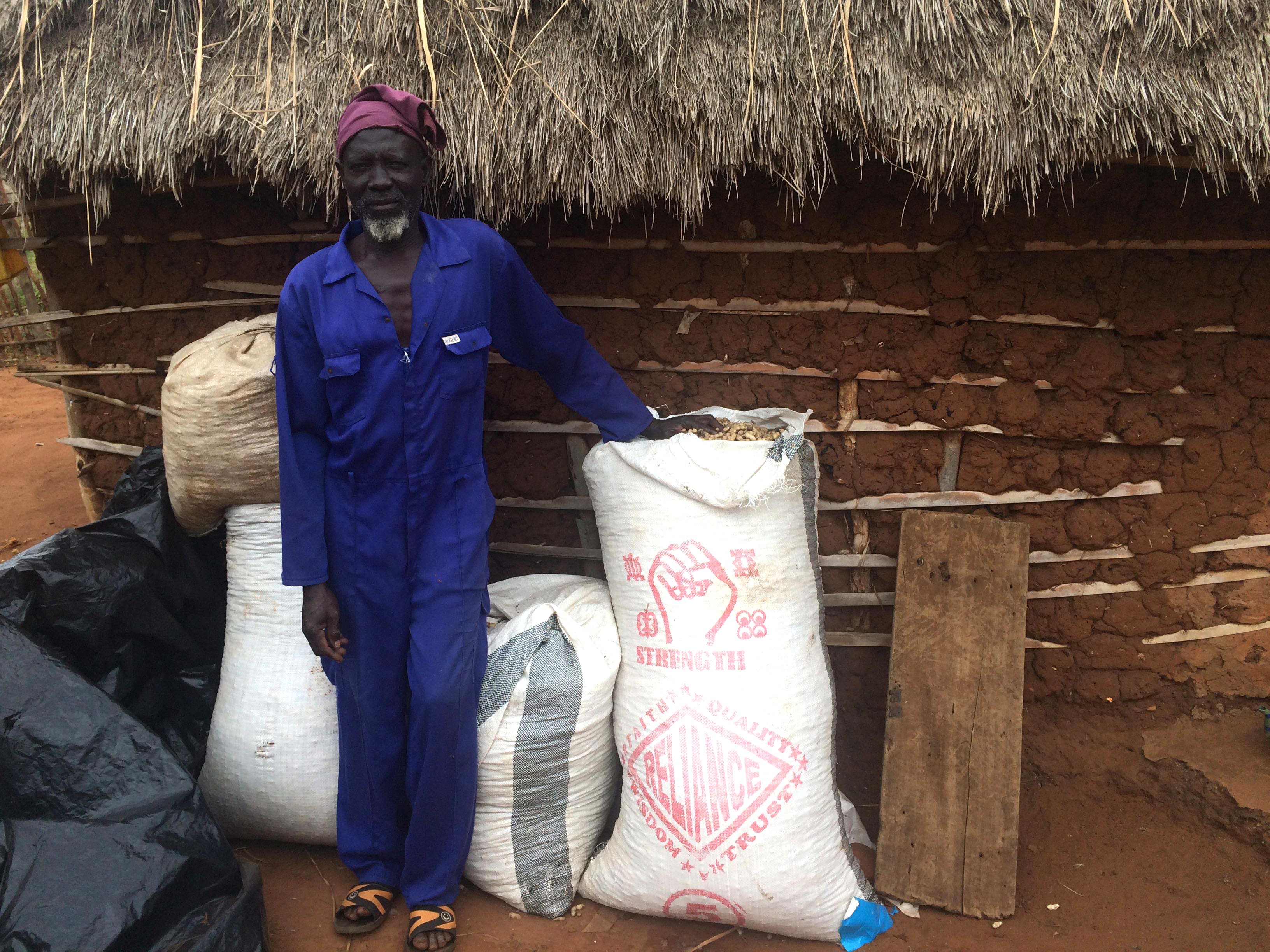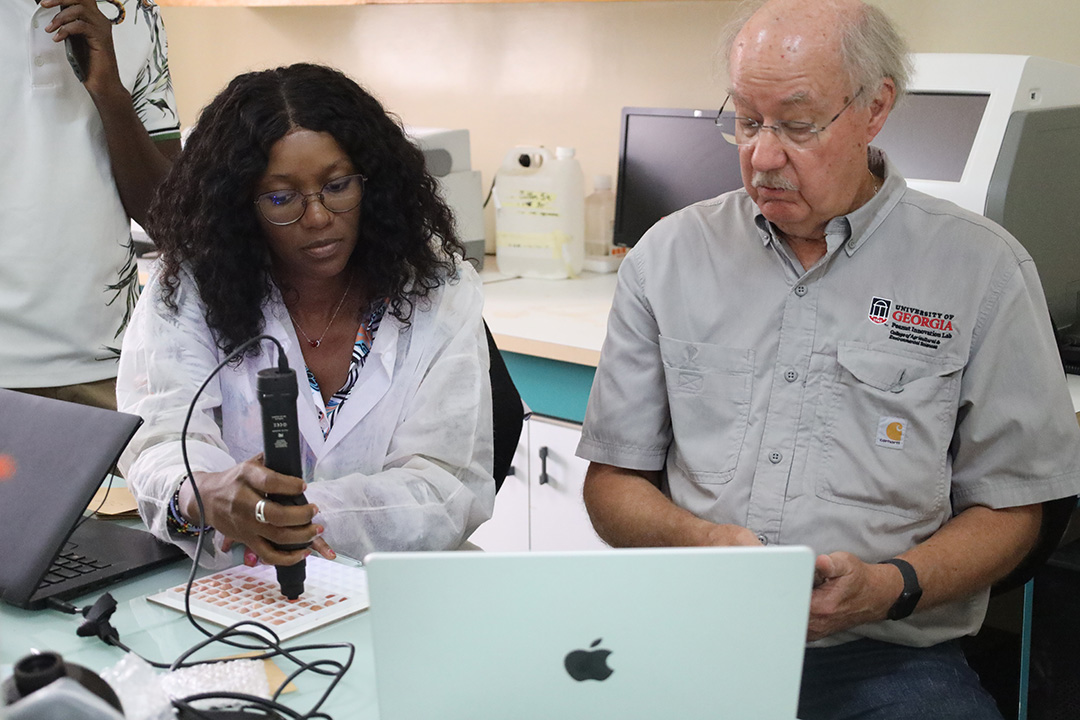A few years ago, peanut farmers in the Dagomba village in the Ashanti region of Ghana had little training in how to grow, dry and store their crop in a way that would increase yield and improve quality.
They planted the same variety that has grown in the region for decades and hoped that rains would fall at the right time to make a good crop. They harvested whenever they could and spread the nuts out on the ground to dry in the sun.
But when offered the chance to learn improved techniques, they took advantage and have results to show for it.
Now, a dozen of the smallholder farmers in the area have earned recognition from their national government for their contribution to food security in Ghana, an award taking into account the farmers’ adoption of best practices taught through farmer field days organized and funded by the Feed the Future Peanut & Mycotoxin Innovation Lab (PMIL).
The farmers, nine women and two men, are from the Dagomba village in the Drobonso District of Ashanti region. They first began training in 2013, taking part in farmer field days run by PMIL’s partner, the Crops Research Institute (CRI) under the Council for Scientific and Industrial Research (CSIR) in Ghana. The training sessions are held every two weeks during the growing season.
In the training, farmers learned how to select good seeds for planting, practice weed management, and apply oyster shells to provide calcium, a nutrient that gives the pods strength to ward off insect damage which can lead to mold. Preventing mold is important, since peanuts – or groundnuts as they are called in much of the world – are susceptible to a type of mold that produces aflatoxin, a kind of mycotoxin. In high enough doses, aflatoxin can kill, but simple steps during growing season and at harvest, in drying and when storing, can discourage mold growth.
Putting to use what they learned at farmer field days, the farmers at Dagomba now follow the best management practices that research has shown will deter aflatoxin contamination – drying their pods on a tarp (rather than on the bare ground), getting the moisture content below 10 percent, and storing the groundnuts in special bags on pallets.
Since 2013, the farmers have regularly trained in these BMPs and now teach other farmers in the surrounding communities what they’ve learned. Each farmer who participates is required to teach one other person, but in practicality, his higher yield demonstrates the results of using improved seed and techniques for in the field and for storage.
“The farmers have been particularly open to new ideas and incorporating BMPs into their traditional practices during our fields schools and demonstrations,” said Moses Mochiah, who works with the farmers through the Crops Research Institute.
Data generated by researchers from CRI so far suggest that even though the best management practices increased the cost of production, they also increased yield, allowing the farmers to afford the investment in their crops. Research during 2016 confirmed these findings.
PMIL and its precursor, the Peanut Collaborative Research and Support Program, have worked in Ghana since 1990, partnering with the national research program to find, test and implement interventions that help smallholder farmers be more productive.
“It's gratifying to see the farmers receive recognition, but also to know that the national program and Feed the Future are working together to make practical, long-term improvements in food security for the farmers and consumers in Ghana,” said PMIL Director Dave Hoisington.
The Ghanaian Ministry of Food and Agriculture officially recognized the Dagomba farmers as part of the 32nd National Farmers Day late last year, specifically naming the group the best organized among producers. Each farmer received a certificate, Wellington boots, cutlasses (machete) and knapsack spraying pump.








